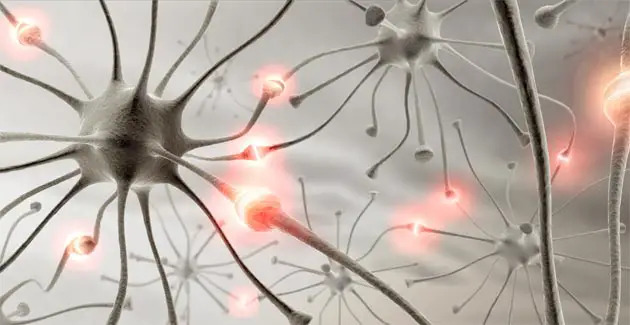Take a guess at how many steps you take a day? Seriously, just guess. You may be shocked in finding out that the typical person takes anywhere between five thousand to ten thousand steps every day.
So obviously, our feet are definitely subject to stress, which is mostly put upon the tendons, ligaments, joints and nerve.
The most prominent source of pain in our feet comes from our nerves, and is the result of either direct pain of the nerve or by medical or health conditions that can end up damaging the nerve.
Nerve pain in our feet is highly noticeable, as a quick, sharp pain will be sent throughout your body from your foot.
Subsequently, the area of your foot with the damaged or irritable nerves will be very sensitive.
Identifying the Causes of Nerve Pain
Unfortunately, it’s very difficult to successfully identify the source or cause of the nerve pain. While we do not yet know the specifics, it is safe to assume that any existing nerve pain we feel is probably due to some damage inflicted on the nerves in the past.
It is estimated that as many as ten percent of Americans suffer from nerve pain, or at least have at least some point in their lives.
Nerve pain is far more likely to happen in middle aged and older Americans; while you can develop it at or after the age of forty, it is far more likely to occur in people after the age of sixty.
Most of the people who do have nerve damage and pain also have other forms of health issues as well, such as high blood sugar level, obesity, high cholesterol levels, or diabetes. All of these factors could contribute to nerve pain.
Common Problems
One of the main problems of nerve pain in the foot is when a nerve thickens, specifically a nerve that runs in between toes.
Symptoms of this toe nerve thickening include a quick, sharp pain that is sent through the body or a burning sensation in the toes.
This pain and/or burning sensation only gets worse when pressure is applied to the affected area.
The best way to deal with this problem is to take injections given to you by your doctor to decrease the inflammation of the nerves, as well as to wear shoes that have better arch support and are better cushioned.
Another explanation for nerve pain in the feet is from having a pinched nerve, and this can occur at any location where there are nerves in the foot and not just the toes.
Pinched nerves usually happen because of swelling, a tight, narrow shoe, or physical trauma, and just as with a thickened nerve, a sharp pain that is shot through the body is a common symptom of a pinched nerve.
Your feet will also become much more sensitive to touch and pressure, making walking and mobility much more restricted and difficult.
A pinched nerve will also only get worse as you apply more pressure to it. This is why that at various intervals throughout the day, you may want to lay down on your bed or couch and elevate your leg and foot into the air.
Resting is always one of the key elements behind making your foot feel more relaxed and less painful.
Another very common treatment by doctors for treating a pinched nerve is to give you a cortisone shot and a prescription of anti-inflammatory drugs, which will treat the pinched nerves.
Other common recommendations from doctors include wearing more comfortable shoes with padding at areas where the nerve is being pinched, as well as seeking physical therapy if it in any way shape or form could help the compressed area.

High levels of blood sugar are often a time related with nerve pain, and is therefore usually a good idea to treat the high blood sugar levels if you can.
The nerve pain most associated with high blood sugar levels is nerve damage called peripheral neuropathy.
Not only as many as twenty five percent of diabetics will experience peripheral neuropathy. This is the link between high blood sugar levels and nerve pain.
Peripheral neuropathy most often occurs at night while we sleep, and over time, you will begin to notice losing the feeling and sensation in your feet, starting with your toes.
This is very important to treat and if you are feeling this loss of feel in your toes or feet, you should consult your doctor for treatment as soon as possible.
Treatments that doctors can give you will include medicine to control and stabilize your high levels of blood sugar, anti-seizure drugs, anti-depressant medications, Vitamin B and other vitamin supplements.
Peripheral Neuropathy
Peripheral Neuropathy is such a diverse topic that it really deserves its own section on this article.
There are many different causes of peripheral neuropathy, including physical injuries or accidents, taking drugs that may have dangerous side effects, tumors, compressed or pinched nerves, a lack of sufficient levels of Vitamin B, health issues or diseases (such as kidney or liver disease), as well as nerve pain that can go entirely unexplained.
There are also symptoms to peripheral neuropathy as well, such as having numbed feet. Many people may not treat numbed feet if they don’t feel any pain, but this alone is a grave mistake.
This numbness feeling can really occur anywhere in your body at anytime, but as this is about nerve pain in the feet, we’ll stick to the symptoms in the feet.
Besides numbness in the feet, other symptoms include a burning feeling between toes, tingling sensations throughout the feet, and sharp, brief levels of pain sent throughout the body starting from the feet.
This pain will get worse with pressure or even simple touches to the nerve area or while we sleep.